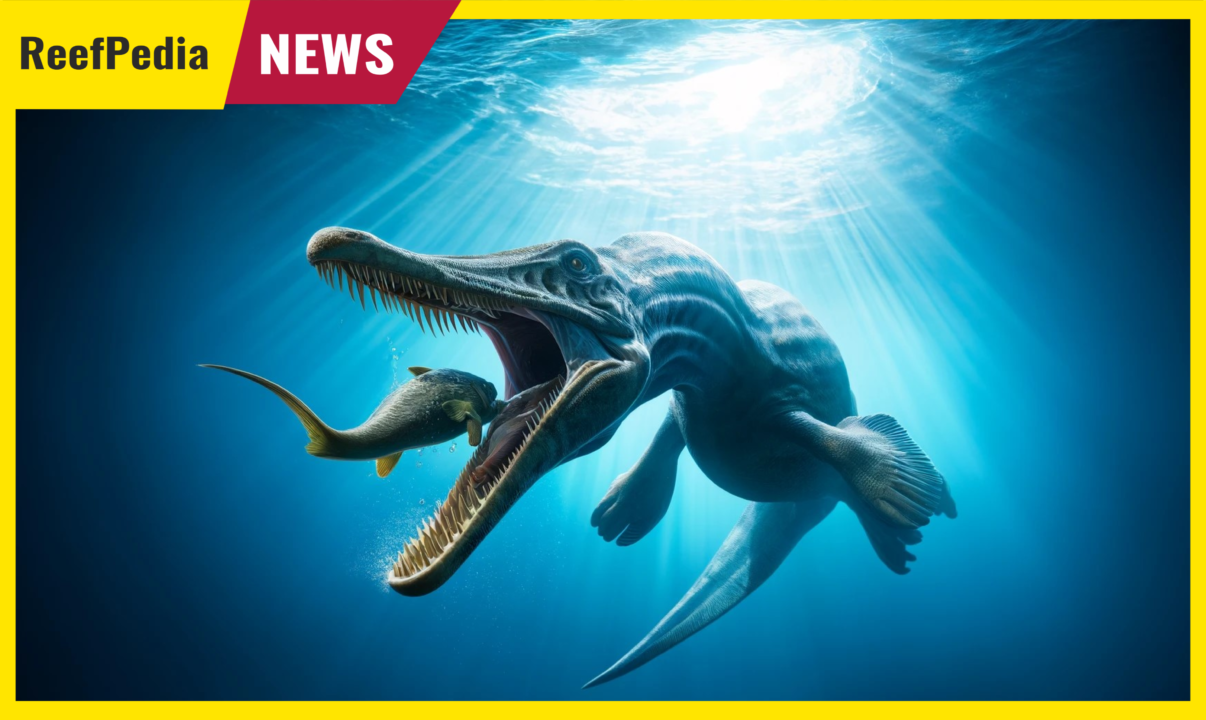On the Jurassic Coast in Dorset, within the cliff rocks, scientists have made a groundbreaking discovery. They found a pliosaur skull that measures 2 meters in length and has recently been recognized as the most complete ever found, earning a spot in the Guinness World Records.
Pliosaurs were extinct marine reptiles from the Plesiosauria family, living from the late Jurassic to the early Cretaceous period, about 160-90 million years ago. These predatory creatures were among the most dominant predators of their time, reaching lengths of up to 12 meters. They had huge, strong jaws with sharp teeth, perfect for grabbing and tearing apart their prey, including fish and other marine reptiles, and even smaller members of their own species.
Pliosaurs had short necks unlike their long-necked relatives, the plesiosaurs, and four strong, flipper-like limbs, which allowed them to move efficiently through the waters of the Jurassic seas. Their powerful bodies were adapted to life in various marine environments, from shallow coastal waters to deep oceans.
The discovered pliosaur skull is notable not only for its size but also for its completeness, preserved at 95%. The teeth, especially those at the front, are particularly impressive. The dentition is long and sharp, indicating that the pliosaur could kill its prey with a single bite.
Dr. Steve Etches, who led the excavation, is fundraising to recover the rest of the remains of this prehistoric creature. These fossils, displayed at the Etches Collection museum in Kimmeridge, attract numerous visitors, offering a unique opportunity to admire life on Earth millions of years ago.
About the author

Grzegorz Bubak
My fascination with marine aquariums began over two decades ago when I stumbled upon an article about this topic in a magazine. Since then, the underwater world has become my obsession and passion, shaping my everyday life. I started my adventure with marine aquariums with soft corals, which were my first step into this fascinating world. Over time, captivated by the diversity and beauty of SPS corals, I decided to focus on their cultivation, which continues to fill me with constant wonder.
Thanks to my experience and passion for marine aquariums, I am ready to share my knowledge and expertise with other enthusiasts in this field. I am happy to be part of the Reef Pedia community, which serves as an invaluable source of information for all marine aquarium lovers.

